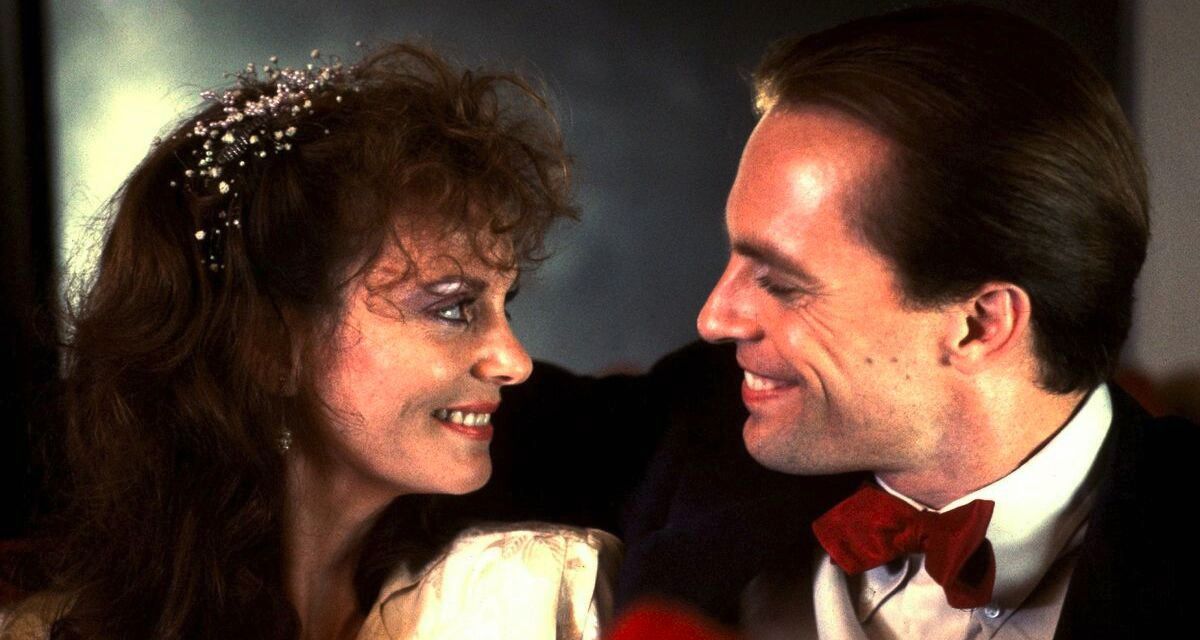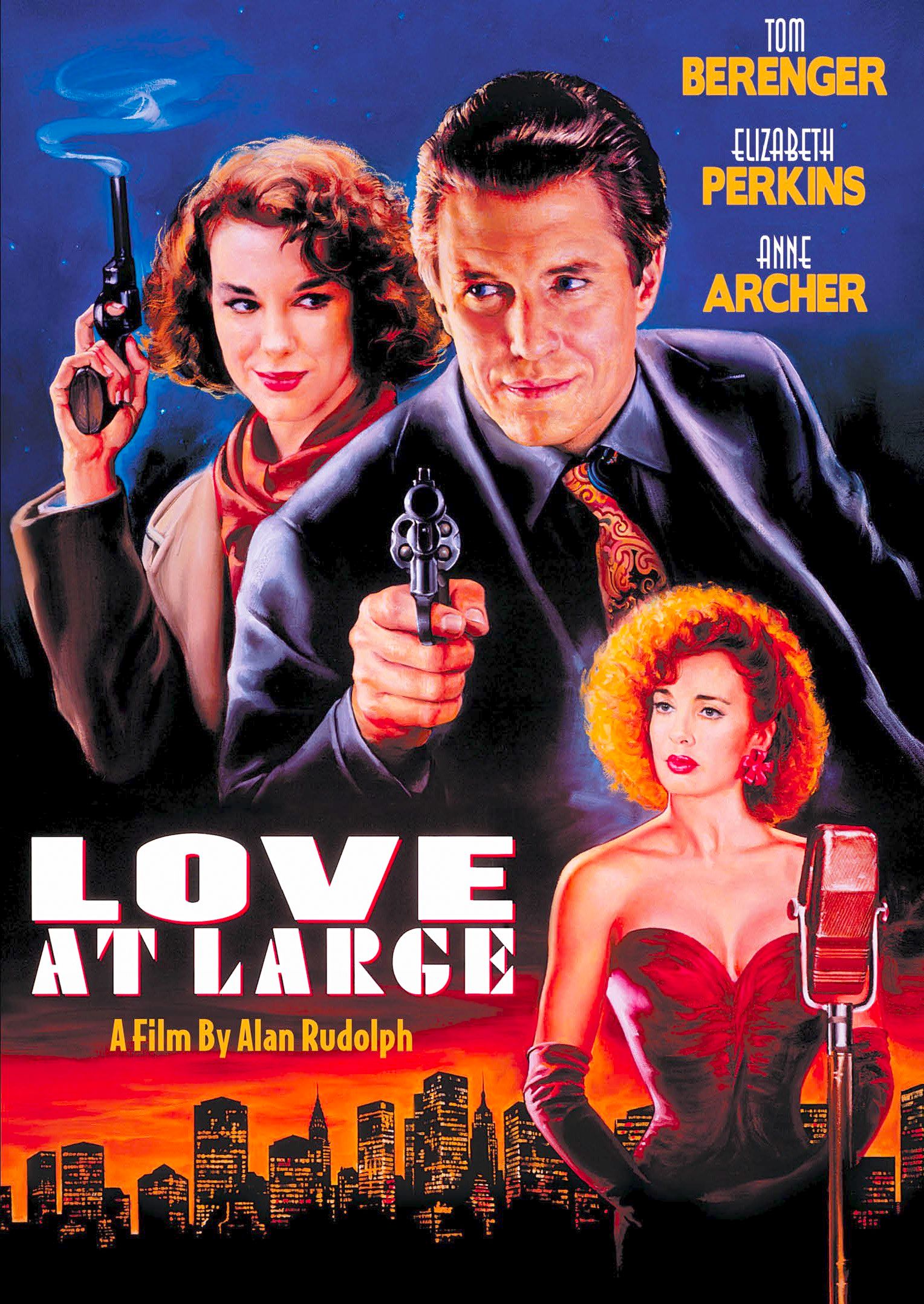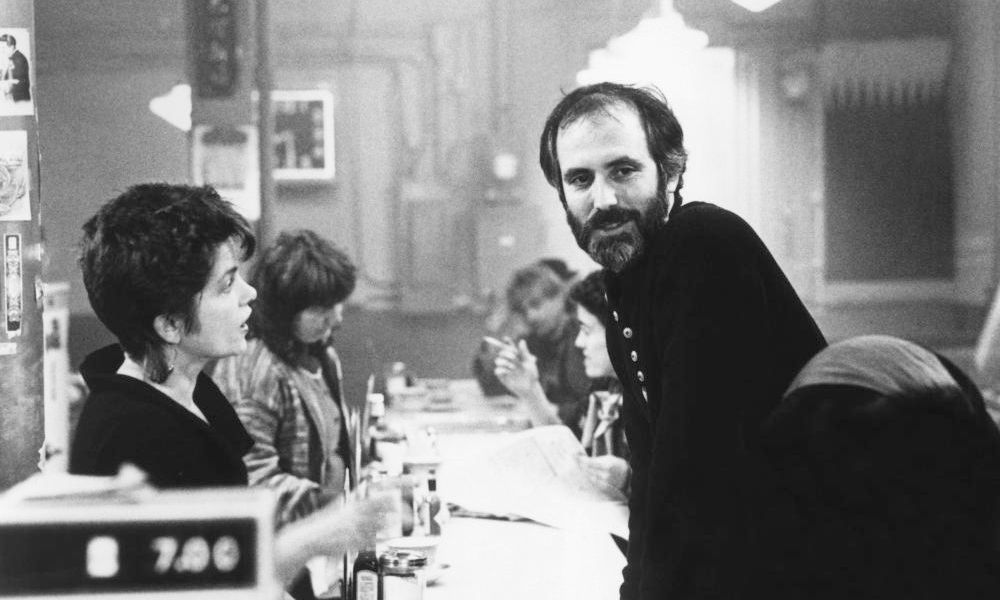"Alan Rudolph has directed a string of beguiling, idiosyncratic movies… Rudolph creates a distinctive comic universe that is nearly as populous but more romantic and artificial than Altman's; his playful, poetic scripts glisten with puns, surreal non sequiturs and arch literary conceits. Borrowing ingredients from farce - amorous doublings, mistaken identities and coincidences - Rudolph nevertheless steers his films towards melancholy and regret." - Tom Charity (The Rough Guide to Film, 2007)
Alan Rudolph
Director / Screenwriter
(1943- ) Born December 18, Los Angeles, California, USA
(1943- ) Born December 18, Los Angeles, California, USA
Key Production Country: USA
Key Genres: Drama, Comedy Drama, Psychological Drama, Ensemble Film, Romance, Marriage Drama, Psychological Thriller, Mystery, Thriller, Romantic Drama, Fantasy
Key Collaborators: Mark Isham (Composer), Keith Carradine (Leading Actor), David Blocker (Producer), Tom Walls (Editor), Steven Legler (Production Designer), Robert Altman (Producer), Geraldine Chaplin (Leading Actress), Geneviève Bujold (Leading Actress), Carolyn Pfeiffer (Producer), Jan Kiesser (Cinematographer), Elliot Davis (Cinematographer), Toyomichi Kurita (Cinematographer)
Key Genres: Drama, Comedy Drama, Psychological Drama, Ensemble Film, Romance, Marriage Drama, Psychological Thriller, Mystery, Thriller, Romantic Drama, Fantasy
Key Collaborators: Mark Isham (Composer), Keith Carradine (Leading Actor), David Blocker (Producer), Tom Walls (Editor), Steven Legler (Production Designer), Robert Altman (Producer), Geraldine Chaplin (Leading Actress), Geneviève Bujold (Leading Actress), Carolyn Pfeiffer (Producer), Jan Kiesser (Cinematographer), Elliot Davis (Cinematographer), Toyomichi Kurita (Cinematographer)
"Like his mentor Altman, Rudolph functions well with tight budgets. Also like Altman, he prefers working with a regular company of actors, a repertory troupe that often includes Keith Carradine, Geneviève Bujold, and Geraldine Chaplin." - The Film Encyclopedia, 2012
"Alan Rudolph, the son of director Oscar Rudolph, grew up in the film industry and learnt about film-making from watching studio people at work. A pioneer of independent film-making, he began as an assistant director on television programmes such as The Brady Bunch and Love American Style before directing two low-budget horror films, Premonition (1972) and Nightmare Circus (1973, under the pseudonym of Gerald Cormier). Rudolph then entered into a collaboration with Robert Altman that would continue throughout his career… Rudolph's most personal work has a dreamlike look about it and utilises elements of different genres, reworking them to produce what could be described as post-modern fairytales." - Pauline Reay (Contemporary North American Film Directors, 2002)

Choose Me (1984)
"Important independent filmmaker whose eccentric tastes have not endeared him to the filmgoing masses." - Leonard Maltin's Movie Encyclopedia, 1995
"One of the more eccentrically imaginative talents to emerge from America in recent years, Alan Rudolph makes movies that are hard to categorise in terms of genre and tone: while usually set in a recognisably real world, elements of fantasy are common; equally, they veer between comedy and romance, originality and indulgence… Rudolph's work overall is a very welcome alternative to the pat routines of mainstream Hollywood." - Geoff Andrew (The Film Handbook, 1989)
"Alan Rudolph is one of cinema’s most unashamed romantics, and a distinctively self-reflexive one. Although his films yearn for an emotional tie to the world, Rudolph’s desire to connect with an audience is never at the expense of his interest in the materiality of films, in how the particular charge of a frame, cut, or gesture can spark emotion and self-reflection." - Steve Rybin (Senses of Cinema, 2016)
"Rudolph is the quirky, quasi-independent director of such fascinating after-dinner movies as Choose Me (1984), Trouble in Mind (1985) and the curious Mortal Thoughts (1991), which featured the realistically slumming team of Demi Moore and Bruce Willis, in their one and only non-mainstream movie." - Mario Reading (The Movie Companion, 2006)
"Alan Rudolph’s films are populated by mysterious wanderers, musicians, painters, and journalists, people who have flirted with success without ever achieving it and who exist in a timeless, bohemian limbo. It is clear that he identifies with his protagonists. Never as trenchant a satirist as his early mentor, Robert Altman, Rudolph imbues his work with a strong romantic streak. At his worst, he is simply trite and maudlin. At his best, he weaves elaborate fantasies as colourful and eyecatching as anything Coppola ever managed at Zoetrope." - G.C. Macnab (International Dictionary of Films and Filmmakers, 2000)
"Despised by mainstream Hollywood, he has managed to stay true to his idiosyncratic muse and remain in the game despite never having had a breakthrough commercial success. Rudolph's dialogue has a snappy, flirtatious quality, and his distinctive 'pan-and-zoom' style allows audiences to experience performances that are not built from cut to cut. It is not unusual for a Rudolph film to contain four or five shots that are as long as six or seven minutes, unheard of in this era of high-tech editing. Actors who like working with him because he lets them get into real-life rhythms wave their usual salaries, enabling him to adhere to ridiculously low budgets, and he frequently reteams with his talent, knowing that subsequent collaborations will only be richer." - The Hollywood.com Guide to Film Directors, 2004
"People just don’t surrender to my movies, ever. They keep waiting for a regular movie to break out, and when it doesn’t they just hate them! I don’t know any other way." - Alan Rudolph (The Guardian, 2018)
Selected Filmography
{{row.titlelong}}
GF Greatest Films ranking (★ Top 1000 ● Top 2500)
21C 21st Century ranking (☆ Top 1000)
T TSPDT R Jonathan Rosenbaum S Martin Scorsese
21C 21st Century ranking (☆ Top 1000)
T TSPDT R Jonathan Rosenbaum S Martin Scorsese
Alan Rudolph / Favourite Films
Block-Heads (1938) John G. Blystone, Citizen Kane (1941) Orson Welles, Day for Night (1973) François Truffaut, La Dolce vita (1960) Federico Fellini, Dr. Strangelove or: How I Learned to Stop Worrying and Love the Bomb (1964) Stanley Kubrick, Ikiru (1952) Akira Kurosawa, McCabe & Mrs. Miller (1971) Robert Altman, Persona (1966) Ingmar Bergman, The Rules of the Game (1939) Jean Renoir, Sunrise (1927) F.W. Murnau.
Source: Sight & Sound (2002)
Block-Heads (1938) John G. Blystone, Citizen Kane (1941) Orson Welles, Day for Night (1973) François Truffaut, La Dolce vita (1960) Federico Fellini, Dr. Strangelove or: How I Learned to Stop Worrying and Love the Bomb (1964) Stanley Kubrick, Ikiru (1952) Akira Kurosawa, McCabe & Mrs. Miller (1971) Robert Altman, Persona (1966) Ingmar Bergman, The Rules of the Game (1939) Jean Renoir, Sunrise (1927) F.W. Murnau.
Source: Sight & Sound (2002)
Alan Rudolph / Fan Club
Dan Sallitt, Adrian Martin, Armond White.
Dan Sallitt, Adrian Martin, Armond White.
"Fan Club"
These film critics/filmmakers have, on multiple occasions, selected this director’s work within film ballots/lists that they have submitted.
These film critics/filmmakers have, on multiple occasions, selected this director’s work within film ballots/lists that they have submitted.


